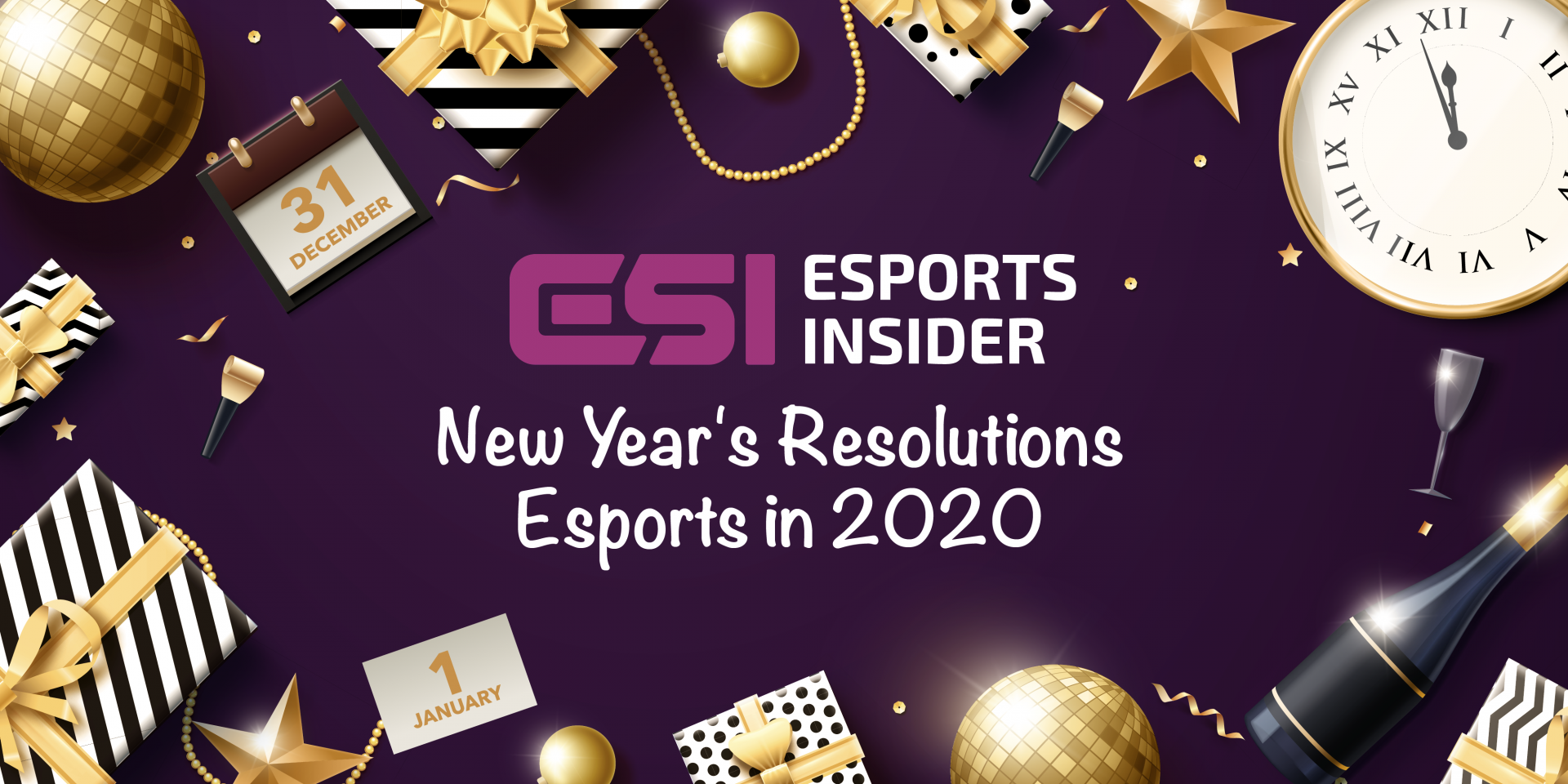There’s little doubt that 2019 has been another huge year for the esports industry. We’ve seen acquisitions aplenty, further franchising, and a swathe of world-renowned brands enter the space. Esports Insider has previously listed the biggest stories of the year and top advertising campaigns of 2019 but it’s about time we look forward as to what 2020 will bring for an industry that doesn’t look like it’s slowing down.

With a little help from our friends, the ESI team have come up with a few areas in which we’d like to see change. Esports remains far from perfect, and reflecting on what we can do better & highlighting important aspects remains vital.
The UK must build on a huge two years
Dial the clocks back two whole years and the UK would rarely attract top tier global esports events. Since then, we’ve had a Dota 2 Major, a CS:GO Major, a Call of Duty World League stop, and Rocket League World Championships but to name a few.
There’s been large strides taken with government too, with Margot James, former Minister for Digital and the Creative Industries taking an active interest in the industry and helping foster growth. The ESL UK-led project Weavr being awarded a £4 million demonstrator grant by UK Research and Innovation (UKRI) is testament to the great work that’s been done in the UK.
With the sad news of voluntary redundancies at ESL UK late this year and a new government ploughing on with Brexit, it feels as if the UK’s position in the esports ecosystem is coming under threat – and we should do our very best to preserve the exceptional work done before us.
Exceptional esports host Frankie Ward shared just what she’d like to see: “Next year I’d like to see event more events in the UK, and to see more initiatives to get existing fans and newer audiences together discovering the unique experience of live esports – in 2019, we saw CS:GO and PUBG produced by FACEIT, a CWL tour stop, and ESL One bring Dota 2 back to Birmingham, but there’s definitely room for more premier events on the calendar. With the restructuring of ESL’s efforts in the UK, there is also a risk of a detrimental effect on esports production talent – I’m hoping more events would help to fill that gap and make the most of existing talent too.”
Michael O’Dell, Managing Director of London Royal Ravens also believes government support will be integral in ensuring continued growth: “I would like to see more support to accelerate growth for esports companies in the UK from the government”.
Health and balance is key & should be prioritised
We caught up with Eri Neeman, another esteemed host – and here’s what he’d like to see changed and prioritise going into the new year: “I’d like to see more figure heads, pro players, talent and streamers be vocal about the importance of health and balance in regards to gaming/career.”
He continued: “We’ve lost too many too young just this year. Gaming/Esports is wonderful and we’ll only get bigger from here but I’d love to see the ones with the most influence in this industry highlight how important balance is. Gaming is not life. Life is life. There is a life within gaming and a life outside of it. It’s important for both of those lives to be nurtured. You can give more to gaming and the industry if you take care of yourself. Too many have died too young. I’d love for that to stop coming into the new decade.”
It’s important to reflect and remember those we lost this year and hold them close to our hearts. It’s horribly frustrating to see esports professionals getting banned from Twitch every other week for using homophobic or racist slurs when truly their substantive reach can and should be used to spread positivity and good practice. Let’s cut the bad behaviour and work together to make the esports industry a better and more supportive place in 2020. There’s no need for constant one-upping or petty arguments – instead let’s work together.
The esports consumer needs to be better monetised
ESI’s award-winning editor Adam Fitch is a man not short of opinion. What he’d love to see change moving into 2020 is esports monetisation. “I’d like to see esports increase monetisation methods in 2020. From organisations properly utilising revenue streams to tournament organisers creating new ways to actually get some return when hosting events, it’s important that fans start to actually pay for what they’re consuming.”
He concluded: “The value of an esports fan is incredibly low and I’d say they’re spoilt in many ways. This needs to change and fast.”
There’s no doubting that esports fans are incredibly spoilt. There’s no other sport in the world where consumers can regularly watch the best teams in the world compete for a total cost of £0. Add to that, they will apparently only consume it on the platform that they’ve deemed is best for them. Esports fans need to realise that everything in life doesn’t come for free. Hiring stadiums to put on top-tier productions isn’t a cheap endeavour and at some point the cost will have to fall back onto the consumer – at least to some extent.
